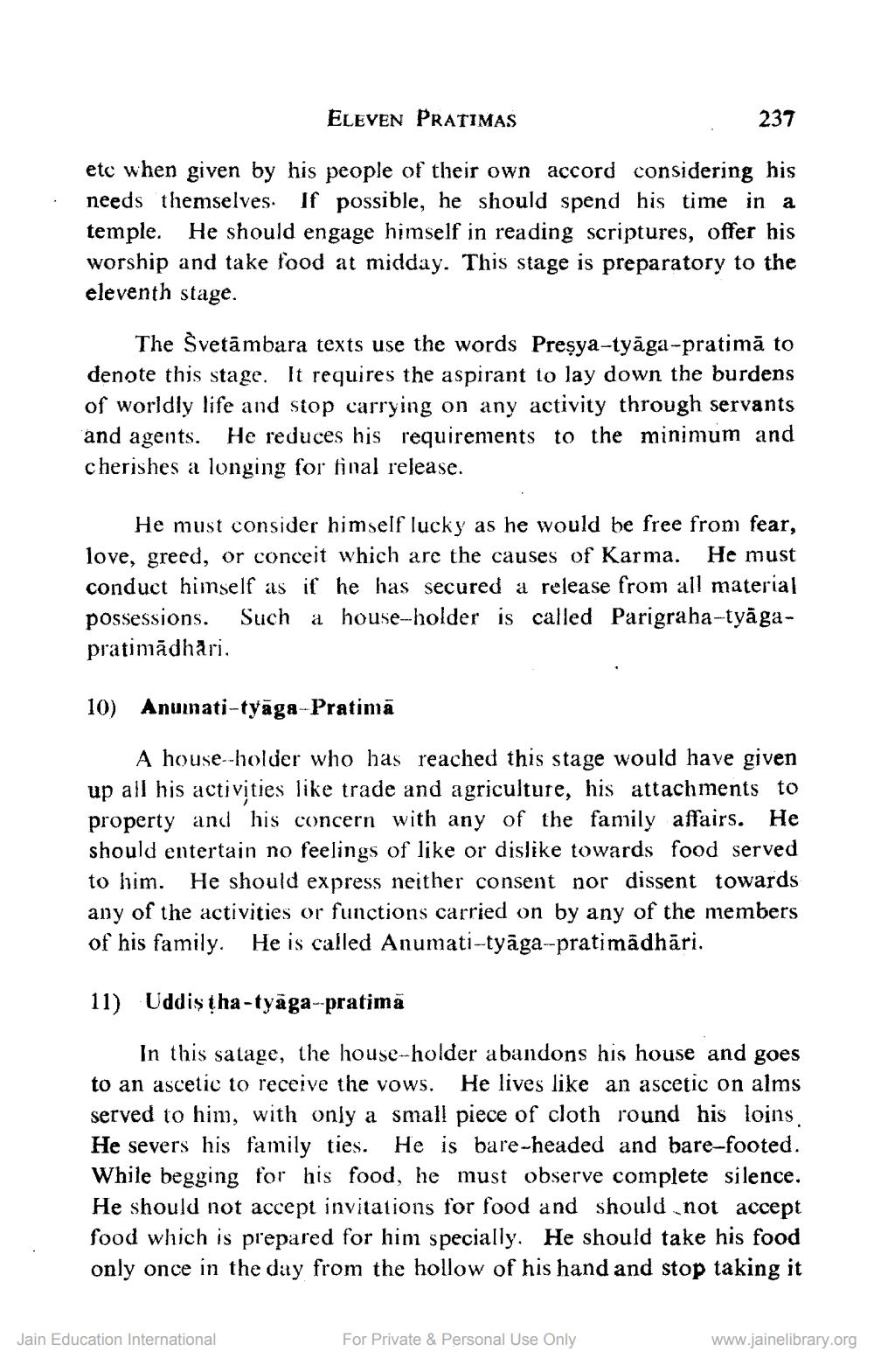________________
ELEVEN PRATIMAS
237
etc when given by his people of their own accord considering his needs themselves. If possible, he should spend his time in a temple. He should engage himself in reading scriptures, offer his worship and take food at midday. This stage is preparatory to the eleventh stage.
The Svetāmbara texts use the words Preşya-tyāga-pratimā to denote this stage. It requires the aspirant to lay down the burdens of worldly life and stop carrying on any activity through servants and agents. He reduces his requirements to the minimum and cherishes a longing for final release
He must consider himself lucky as he would be free from fear, love, greed, or conceit which are the causes of Karma. He must conduct himself as if he has secured a release from all material possessions. Such a house-holder is called Parigraha-tyāgapratimādhari.
10) Anunati-tyāga-Pratima
A house--holder who has reached this stage would have given up all his activities like trade and agriculture, his attachments to property and his concern with any of the family affairs. He should entertain no feelings of like or dislike towards food served to him. He should express neither consent nor dissent towards any of the activities or functions carried on by any of the members of his family. He is called Anumati-tyāga--pratimādhāri.
11) Uddistha-tyāga-pratima
In this satage, the house-holder abandons his house and goes to an ascetic to receive the vows. He lives like an ascetic on alms served to him, with only a small piece of cloth round his loins. He severs his family ties. He is bare-headed and bare-footed. While begging for his food, he must observe complete silence. He should not accept invitations for food and should not accept food which is prepared for him specially. He should take his food only once in the day from the hollow of his hand and stop taking it
Jain Education International
For Private & Personal Use Only
www.jainelibrary.org




